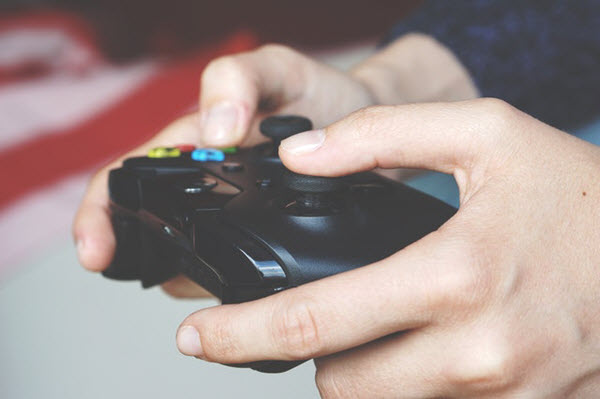Can Apps And Video Games Be Medical Treatments?
By Brian Wallace
January 10, 2024 • Fact checked by Dumb Little Man

Just a few decades ago, the idea that you could treat tremors from Parkinson’s disease or help a person with autism live a more integrated life was fantasy. Over the last several decades, treatment and research advanced significantly on those and many other difficult-to-treat health issues. But then, further help came from an unexpected left-field: technology. Advances in general technology have led to new uses for it, and some of those uses include treating health issues. This sector of healthcare technology has become so popular that by 2025 the market for digital therapeutics is expected to reach $7.8 billion.
What Are Digital Therapeutics?

Typical medications are chemical compounds that have been proven to treat a specific type of illness or symptom. Thanks to advances in technology, there are new therapeutic interventions for a whole laundry list of issues that include apps, video games, and more. Digital therapeutics are therapeutic interventions driven by technology. They are designed to alleviate the symptoms of certain neurobehavioral or physiological conditions. Many of these treatments are combined with more traditional treatments in order to boost efficacy.
The possibilities when it comes to digital therapeutics are endless. Already, this burgeoning sector of healthcare has shown promising results in treating Type 2 diabetes, cardiovascular disease, respiratory issues, obesity, problems of the central nervous system, gastrointestinal issues, and more. These treatments offer hope to those with difficult-to-treat conditions and offer new options for unmet treatment needs. In some cases, it may even decrease reliance on medication.
New Digital Therapeutic Interventions Abound

New and old technologies are combining to create new treatments all the time. Things like MRIs, ultrasounds, video games, and apps are nothing new. But, when they are put together in new ways or added to new technologies like artificial intelligence, that’s where the magic happens. Exablate Neuro is a perfect example of existing tech being used in new combinations for new treatments. It was developed by scientists in Israel using ultrasound waves guided by MRI to stop Parkinson’s tremors, something that until now has been exceedingly difficult to treat.
Doctors fit a patient with a specialized cooling helmet, kind of like a radiator for your head, which prevents the patient’s skull from overheating during the procedure. Next, the Vim point, the point at which the tremors originate, is located through MRI imaging. Then, high intensity ultrasound waves are used to treat the Vim point and end tremors. There are side effects, but most are mild and temporary.
Video games are another area where advancements are being made to treat certain conditions. Even two or three decades ago, we knew that video games could improve hand-eye coordination, but now the treatments coming from video games are even more impressive. Video games can improve working memory, selective attention, and executive functioning when used appropriately. These improvements can make great strides against a wide array of maladies.
Akili Interactive has developed a number of games that target specific conditions that are very hard to treat. Its Selective Stimulus Management Engine specially designs gameplay to achieve desired results. Algorithms adapt to a specific player and work to coax out desired behaviors, adjusting to each player’s skill level. Sensory and motor stimuli target certain neural pathways and build new links through continued interaction.
The result is the alleviation of symptoms of major depression, multiple sclerosis, ADHD, and autism. Developments are also underway to treat lupus, ICU delirium, and traumatic brain injuries. Biofeedback offers the game a way to learn whether the desired result is being achieved. If it’s not, the game can make adjustments. It monitors heart rate, galvanic skin response, eye tracking, respiration, temperature, and more to ensure proper engagement. If engagement lags, the game adjusts to make the player uncomfortable until they comply.
See Also: 5 Positive Effects of Gaming on Your Mental Health
Apps are also being used to treat addiction. Rather than releasing addicts to the recognizance of an app, these apps are being used in conjunction with outpatient treatment. This makes treatment accessible to more people, as inpatient beds are both highly expensive and difficult to find. The apps provide cognitive behavioral therapy to supplement treatment, giving patients greater access to lifesaving treatment even after they have left a facility.
Learn more about the future of digital therapeutics below.

Source: Nursing School Hub
Brian Wallace
Brian Wallace is the Founder and President of NowSourcing, an industry leading infographic design agency based in Louisville, KY and Cincinnati, OH which works with companies that range from startups to Fortune 500s. Brian also runs #LinkedInLocal events nationwide, and hosts the Next Action Podcast. Brian has been named a Google Small Business Advisor for 2016-present and joined the SXSW Advisory Board in 2019.

